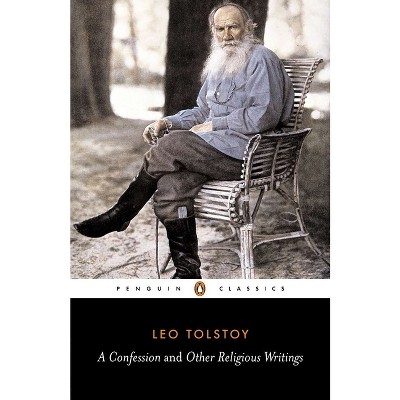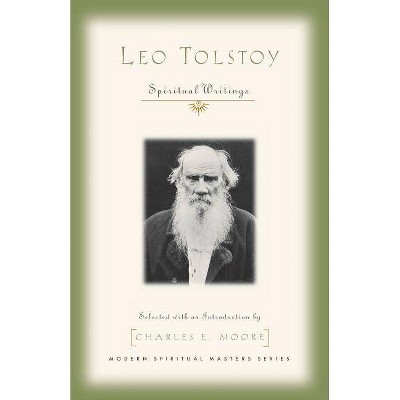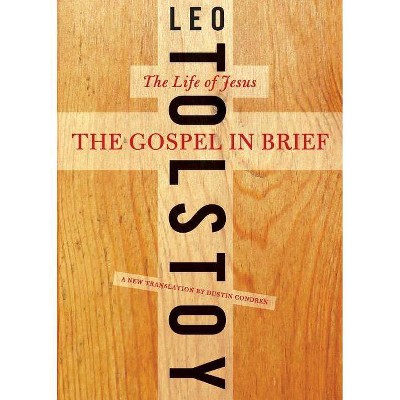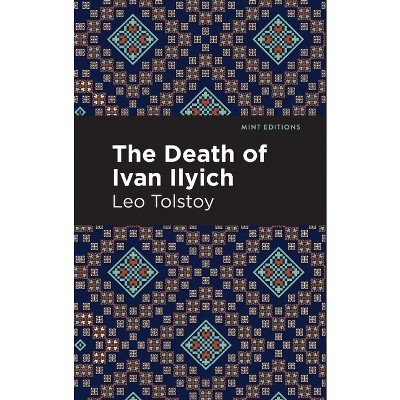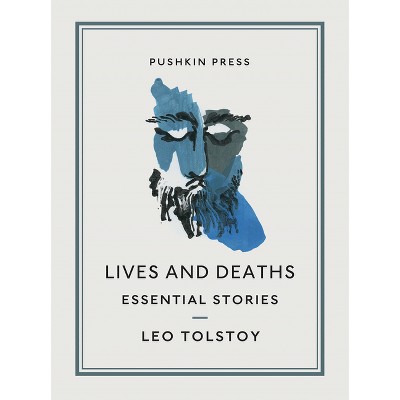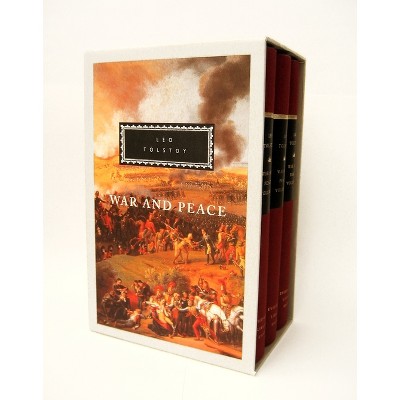Sponsored

Tolstoy as Philosopher. Essential Short Writings - by Leo Tolstoy (Paperback)
In Stock
Sponsored
About this item
Highlights
- This anthology is the fullest edition to date of the rich variety of Tolstoy's philosophical output collected in a single volume that covers more than seven decades of his life, from 1835 to 1910.
- About the Author: Inessa Medzhibovskaya holds tenure in Liberal and Literary Studies at The New School for Social Research and Eugene Lang College.
- 426 Pages
- Literary Criticism, Russian + Former Soviet Union
Description
About the Book
This anthology is the fullest edition to date of the rich variety of Tolstoy's philosophical output collected in a single volume that covers more than seven decades of his life, from 1835 to 1910. The seventy-seven texts included exemplify Tolstoy as an artistically inventive, intellectually powerful, challenging, and absorbing thinker.Book Synopsis
This anthology is the fullest edition to date of the rich variety of Tolstoy's philosophical output collected in a single volume that covers more than seven decades of his life, from 1835 to 1910. The seventy-seven texts included exemplify Tolstoy as an artistically inventive, intellectually powerful, challenging, and absorbing thinker.Review Quotes
"The volume traces the development of Tolstoy's philosophy fromchildhood through to the final years of his life, from the child who in 1837 could dutifully write 'We should all love our fatherland' and 'the fatherland will always find its defenders', to the author of 'Patriotism, or Peace', who asks 'How can this patriotism, from which proceed human sufferings incalculable, both physical and moral, be needful and a virtue?' [T]he work could serve as an introduction to Tolstoy's philosophical writings, as a stimulating addition to Tolstoy scholarship, or as an invitation to explore the source texts."
- Alan Cockerill, New Zealand Slavonic Journal
"Inessa Medzhibovskaya's collection brings together seventy-seven essential texts, marking an unprecedented endeavor in capturing the breadth of Tolstoy's philosophical journey. Medzhibovskaya's meticulous translation and editing efforts illuminate the evolution of Tolstoy's thought, from his earliest writings to his later reflections... Such a comprehensive and textologically-sound compilation is a first, and provides a valuable resource for Tolstoy scholars and enthusiasts, especially those not fluent in Russian. Medzhibovskaya's clear and authoritative translations make these texts accessible and may well establish her edition as a go-to reference in Tolstoy studies. The inclusion of such diverse and lesser-known works in one volume not only enriches our understanding of Tolstoy's philosophical journey but also underscores the depth and breadth of his intellectual pursuits."
-- Michael A. Denner, Tolstoy Studies Journal
"As a whole, both sections of this book provide readers the opportunity to explore the extraordinary flow of Tolstoy's thinking, moving progressively from one theme to another. We can explore thereby the evolution of ideas and notions--from the writer's childhood to the peak of his creative powers, until his death in 1910. This way, the philosophical side of Tolstoy's personality is revealed. Indeed, an incredible and amazing journey into the world of literature and philosophy is offered by the editor of this book. ... This anthology as a whole is a perfectly structured source, revealing the essence of Tolstoy's philosophical ideas and aspirations. The book may be of great interest to connoisseurs of the literary heritage of this Russian writer, as well as for the more sophisticated readers well acquainted with Tolstoy's biography, diaries, and notebooks. What is certain is that the novelty of the published material can enable further research on Tolstoy's philosophical writings."
-- Iuliia Kuznetsova, Studies in East European Thought
"Discovering any untranslated work of Leo Tolstoy is akin to finding buried treasure. Inessa Medzhibovskaya in this lovely volume unearths a cache of short writings and burnishes them for the reader in English with excellent translations and expert commentary. The collection shows Tolstoy's appreciation of life and quest for meaning from his earliest to his last writings. As a seven-year-old child in 1835 he noted observations about birds, and two years later wrote about patriotism--both essays are in the volume. The compendium concludes with a cycle of tales written for the relief of survivors of the Easter pogroms of 1903 in Kishinev, as well as the introduction to his final book, The Path of Life (1910). The writings, the introductory essay, and the notes make this an excellent companion volume for biographies of T
About the Author
Inessa Medzhibovskaya holds tenure in Liberal and Literary Studies at The New School for Social Research and Eugene Lang College. Her eight published books include the first definitive biography of Tolstoy's religious and philosophical evolution, several archival studies of his art and thought, and a book-length entry on Tolstoy with Oxford Bibliographies. A history of Tolstoy's afterlife is upcoming with Princeton.Shipping details
Return details
Trending Poetry






